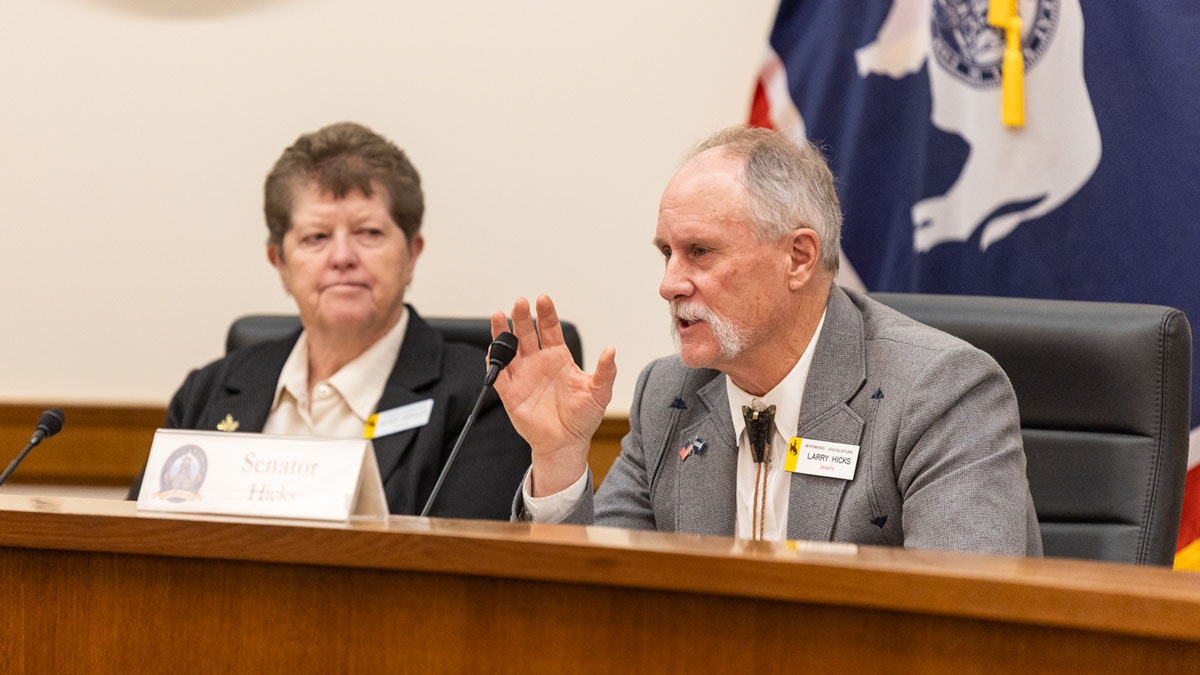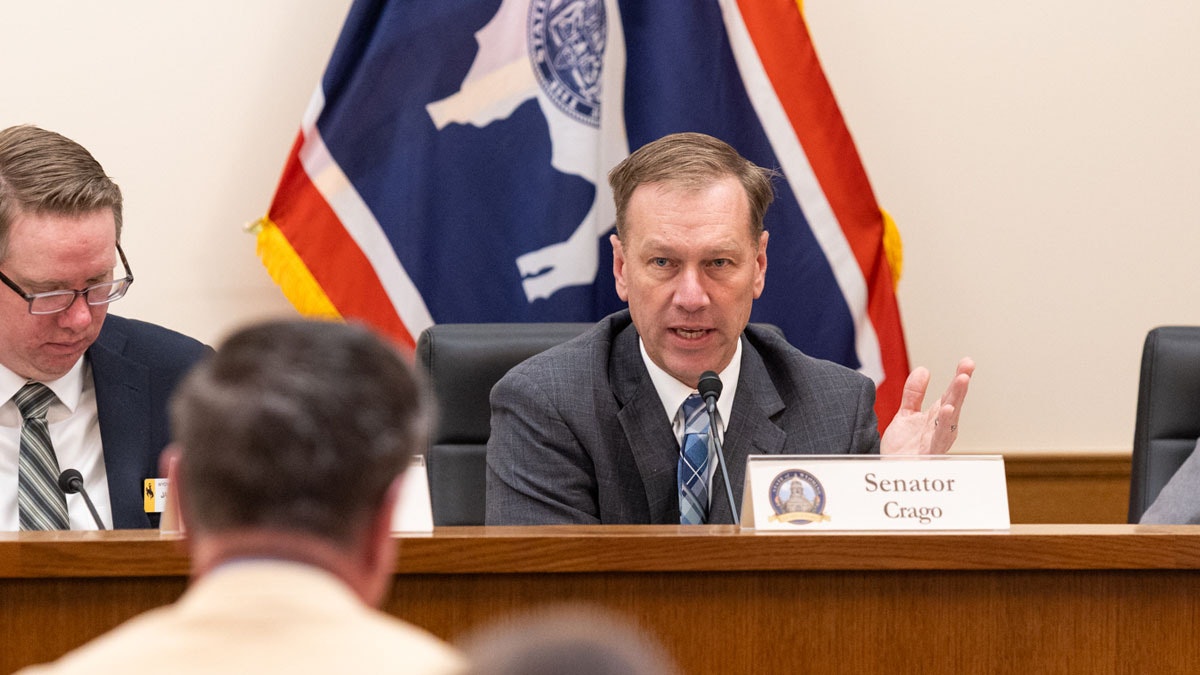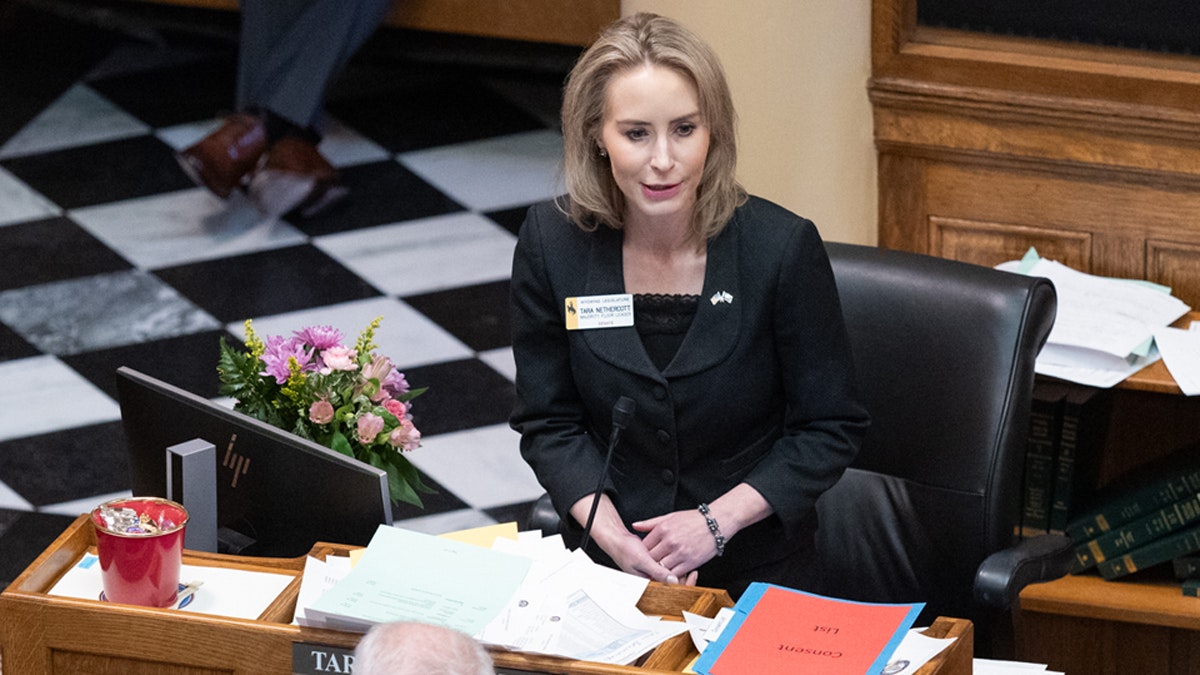There were multiple laws passed last year that prohibit most forms of abortion in Wyoming. Although the constitutionality of these laws is being challenged in court, that hasn’t stopped lawmakers from bringing a handful of other abortion-related bills in this year’s legislative session.
Two of the bills brought specifically address medication-induced abortions, most commonly known as chemical abortions.
Abortion Waste
Senate File 118, sponsored by state Sen. Bo Biteman, R-Ranchester, would add more regulations related to the disposal of waste connected to chemical abortions, with criminal and civil penalties attached for noncompliance.
“There’s a really big concern to what happens if these are done at home and going into the sewer system,” Biteman said. “We don’t want that getting into our drinking water and our rivers and our streams, and possibly killing animals and wildlife.”
Biteman said one of the biggest concerns he attempts to address in SF 118 is preventing waste connected to these types of abortions from getting into public waste systems and waterways.
The bill specifies requirements for manufacturers of chemical abortion drugs and sets regulations for environmental and disposal standards of abortion drugs, to be administered by the Wyoming Department of Environmental Quality.
According to the American College of Pediatricians, chemical abortions make up more than half of abortions performed in the U.S., and in Wyoming most abortions are performed this way. Women can be prescribed the medications mifepristone and misoprostol either in a traditional medical setting or via telemedicine.
The bill requires a medical provider to be physically with a woman when she ingests the first abortion drug and to provide a catch kit and medical waste bag that the patient is then to bring back to the medical provider for proper disposal.
Pro-life advocates like Biteman argue that the chemically altered blood, tissue, and human remains that result from a chemical abortion could be a potential environmental hazard to the water supply when flushed down the toilet.
The Federal Drug Administration examined the potential environmental impacts of abortion pills when it first considered their approval, quoting a 1996 report in which “the Center for Drug Evaluation and Research has concluded that the product can be manufactured, used and disposed of without any expected adverse environmental effects.”
The Environmental Protection Agency, however, warns Americans against flushing drugs, chemicals, and even goldfish down the drain, while hospitals treat placentas as medical waste, and abortion clinics have specific laws for handling human remains.
No such laws exist for the disposal of abortion waste in Wyoming.
Under the bill, those who violate the law could be charged with a felony and face up to three years in prison.
Similar legislation has been drafted in West Virginia and Idaho.
Mandatory Ultrasounds Before Abortions
House Majority Floor Leader Rep. Chip Neiman, R-Hulett, has proposed legislation that would require women to receive ultrasounds before a chemical abortion.
House Bill 137 states that no less than 48 hours before a pregnant woman receives medication for a chemical abortion or before a physician or pharmacist dispenses these drugs, the pregnant woman must receive an ultrasound. It would be up to the physician or pharmacist to verify the ultrasound has been performed.
According to the bill text, this act must take place “in order to provide the pregnant woman the opportunity to view the active ultrasound of the unborn child and hear the heartbeat of the unborn child if the heartbeat is audible.”
“This bill is designed to provide protection to the mother by making sure that the pregnancy is in the uterus and not in another location, thus putting the mother’s life at risk,” Neiman said. “Sadly, trying to make sure both are ok before they’re not.”
Those who violate HB 137 can be charged with a felony carrying up to five years in prison and up to $20,000 in fines.
According to the Guttmacher Institute, 10 states mandate that an abortion provider perform an ultrasound on each person seeking an abortion, and eight of these require the provider to offer the patient the opportunity to view the image.
Some pro-life organizations have said that viewing the image of a fetus will dissuade women from having abortions, but a 2014 Arizona State University study determined that doing so did not change the minds of women who were already highly certain they wanted to get an abortion.
More Regulation
Rep. Martha Lawley, R-Worland, has brought House Bill 148, which would require surgical abortion clinics to have specific licensing., which would require surgical abortion clinics to have specific licensing.
The 2022 U.S. Supreme Court Dobbs decision made access to and regulation of abortion a state’s rights issue.
Lawley said her bill is about protecting the safety of women while abortion is still legal in Wyoming.
HB 148 would require that any abortion clinic be a licensed ambulatory surgical center, and anyone who performs an abortion in Wyoming to be a licensed physician.
Lawley said she’s never heard any concerns about this issue in Wyoming, but has heard of problems in other states like Arizona.
Anyone who violates HB 148 could face a felony carrying 1-14 years in prison.
Rep. Mike Yin, D-Jackson, spoke against the bill on the House floor Wednesday and said it could be considered an acknowledgement that abortion is health care, a determination pro-life advocates in Wyoming have firmly opposed.
The vote passed on introduction by a 53-8 vote.
What Do The Democrats Think?
During a Tuesday press conference, Yin said all three of the abortion bills are being brought under dishonest pretenses meant to eliminate overall access to abortion in Wyoming.
“They should be honest and clear about what that is about — that they don’t want anyone to provide that care in Wyoming,” Yin said. “Why would they pass bills and further restrict abortion after they’ve completely restricted abortion, unless they think that their court case is going to fail?”
At the press conference, he and Rep. Karlee Provenza, D-Laramie, promoted Yin’s House Bill 76, the Reproductive Freedom Act, which prohibits the state from denying or interfering with an abortion prior to viability of the fetus or to protect the person's life or health.
“Because this is something where it could be decided where women lose the right to access reproductive health care or any other Wyoming right, I think it’s important that we make the case moot by passing the Reproductive Freedom Act,” Yin said. “It’s about freedom, which is a core value of Wyoming.”
When asked if any Republicans have signed up to support HB 76, both legislators were non-committal.
“I think any of their Republican constituents wishes that they would,” Provenza said.
Provenza said she’s also planning on bringing a budget amendment that would protect the right to abortion. Unlike a standalone bill, a budget amendment only requires a simple majority.
Leo Wolfson can be reached at leo@cowboystatedaily.com.





